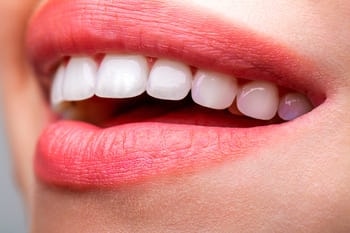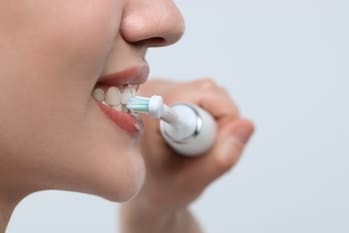Tooth extraction is a common dental procedure that can significantly relieve persistent dental issues such as severe tooth decay, gum disease, or overcrowded teeth. However, the recovery process following a tooth extraction is crucial to ensure proper healing and prevent complications. One important aspect of post-extraction care that is often confused is dietary restrictions, particularly the avoidance of dairy products. This blog delves into why no dairy after tooth extraction is recommended, exploring the scientific reasons behind this advice and offering practical alternatives to support your recovery.
Understanding Tooth Extraction and the Healing Process
Tooth extraction involves removing a tooth from its socket in the bone. This procedure can be straightforward or complex, depending on the tooth’s position, root structure, and underlying conditions. Following the extraction, the body initiates a healing process that involves blood clot formation, tissue regeneration, and bone healing. Proper care during this period is essential to avoid complications such as dry sockets, infection, or delayed healing.
The Role of Blood Clots
Immediately after a tooth extraction, a blood clot forms in the socket to protect the underlying bone and nerves. This clot is vital for healing as it prevents excessive bleeding, shields the exposed bone, and serves as a scaffold for new tissue growth. Disrupting this blood clot can lead to severe pain and complications, making post-extraction care paramount.
The Role of Dairy Products in the Body
Dairy products, including milk, cheese, and yogurt, are rich sources of essential nutrients like calcium, vitamin D, and protein, which are important for overall health and bone strength. However, consuming dairy after tooth extraction can interfere with the healing process, leading dental practitioners to advise against their intake during recovery.
Why No Dairy After Tooth Extraction?
Understanding why no dairy after tooth extraction is crucial for ensuring a smooth and complication-free recovery. Here are the primary reasons:
1. Impact on Blood Clot Formation
After a tooth is extracted, maintaining the integrity of the blood clot in the socket is essential. Dairy products, especially those that are warm or have a high-fat content, can potentially disrupt this clot. The proteins and fats in dairy can interact with the blood clot, making it more susceptible to displacement. Dislodging the clot can result in dry socket, a painful condition that delays healing and requires additional treatment.
2. Risk of Infection
Dairy products can promote bacterial growth in the mouth, increasing the risk of infection at the surgical site. Consuming dairy may introduce lactic acid bacteria, which thrive in environments rich in sugars and fats. This could potentially lead to an imbalance in the oral microbiome. This imbalance can hinder the body’s natural ability to fight off harmful bacteria, increasing the likelihood of post-extraction infections.
3. Mucus Production and Oral Health
Dairy consumption can lead to increased mucus production, which may interfere with healing. Excess mucus can trap bacteria and food particles around the extraction site, creating an ideal environment for bacterial growth and prolonging the healing period. Additionally, thick mucus can make it difficult to maintain proper oral hygiene, further elevating the risk of infection.
4. Potential Interaction with Medications
Post-extraction care often involves taking antibiotics or pain relievers to manage pain and prevent infection. Dairy products can interfere with the absorption of certain medications, reducing their effectiveness. For instance, calcium in dairy can bind to antibiotics like tetracycline, preventing them from working optimally against bacterial infections.
5. Inflammation and Healing
Consuming dairy can exacerbate inflammation in the oral tissues surrounding the extraction site. Dairy products, particularly those high in fat, can increase the body’s inflammatory response, potentially slowing the healing process. Reduced inflammation is crucial for efficient tissue regeneration and overall recovery.
Common Misconceptions: But Why No Dairy?
 Many individuals question the advice to avoid dairy after tooth extraction, wondering if it is a stringent restriction or if occasional consumption is permissible. The primary concern is the potential for dairy to interfere with the healing process, especially in the critical first 24-48 hours following the procedure. While moderate consumption may not cause significant issues, it is generally recommended to avoid dairy to ensure optimal healing and reduce the risk of complications.
Many individuals question the advice to avoid dairy after tooth extraction, wondering if it is a stringent restriction or if occasional consumption is permissible. The primary concern is the potential for dairy to interfere with the healing process, especially in the critical first 24-48 hours following the procedure. While moderate consumption may not cause significant issues, it is generally recommended to avoid dairy to ensure optimal healing and reduce the risk of complications.
Dairy After Tooth Extraction: What to Avoid
Understanding dairy after tooth extraction involves knowing which dairy products to avoid and why they can be problematic during recovery.
1. Milk and Dairy Products
Milk is a staple dairy product often consumed regularly. However, after a tooth extraction, it is advisable to avoid drinking milk to prevent the disruption of the blood clot. Dairy products like cream, cheese, and ice cream also fall into this category, as their high fat content can contribute to increased mucus production and bacterial growth.
2. Chocolate Milk
While delicious and nutritious, chocolate milk contains added sugars and fats that can exacerbate inflammation and promote bacterial growth in the mouth. The combination of sugar and dairy makes chocolate milk particularly problematic, as it can create an environment conducive to tooth decay and infection.
3. Fresh Milk
Fresh milk, whether consumed cold or warm, should be avoided post-extraction. Warm milk can loosen the blood clot, while cold milk can cause sensitivity and discomfort in the affected area. Additionally, the natural sugars in fresh milk can feed bacteria, increasing the risk of infection.
Alternatives to Dairy During Recovery
While avoiding dairy after tooth extraction is essential, it is equally important to ensure that you still receive the necessary nutrients for healing. Here are some dairy alternatives that can support your recovery:
1. Coconut Milk
Coconut milk is an excellent alternative to dairy, especially for those who are lactose intolerant or following a dairy-free diet. It is rich in healthy fats and essential nutrients that can aid healing. Coconut milk has natural anti-inflammatory properties that can help reduce swelling and promote tissue repair without the risk of disrupting the blood clot.
2. Other Non-Dairy Soft Foods
Incorporating a variety of non-dairy soft foods into your diet can ensure you receive adequate nutrition without compromising your recovery. Options include:
- Mashed Potatoes: A soft and comforting food that is easy to consume and gentle on the extraction site.
- Applesauce: Provides vitamins and is easy to eat without irritating.
- Scrambled Eggs: A good source of protein that can support tissue regeneration.
- Smoothies: Made with non-dairy milk alternatives and blended fruits, providing essential vitamins and hydration.
3. Plant-Based Yogurt
For those seeking a yogurt alternative, plant-based yogurts made from almond, soy, or coconut milk can provide similar textures and flavours without the drawbacks of dairy. These alternatives often contain probiotics that support a healthy oral microbiome, preventing infections.
Specific Cases: Dental Implants and Other Oral Surgeries
The advice to avoid dairy is not limited to simple tooth extractions but extends to more complex dental procedures such as dental implants and wisdom tooth removal. Dental implant surgery involves placing a titanium post into the jawbone to support a replacement tooth. Proper healing around the implant site is crucial for the procedure’s success.
Dental Implants
After dental implant surgery, avoiding dairy is recommended for the same reasons as with tooth extraction. Dairy can interfere with blood clot formation, promote bacterial growth, and increase inflammation, all of which can compromise the stability and integration of the implant into the jawbone. Maintaining a dairy-free diet during the initial healing period can enhance the success rate of dental implants and ensure a smooth recovery.
Wisdom Tooth Removal
Wisdom tooth removal is another common dental procedure where avoiding dairy can be beneficial. Extracting wisdom teeth often involves more extensive surgery and a longer healing period. Consuming dairy during this time can increase the risk of dry socket, infection, and prolonged discomfort, making it essential to follow dietary restrictions carefully.
How to Facilitate Proper Healing Without Dairy
Ensuring proper healing after tooth extraction involves more than just avoiding dairy; it requires a comprehensive approach to oral care and nutrition. Here are some strategies to facilitate healing:
1. Maintain a Soft Foods Diet
Eating soft foods that are easy to chew and swallow minimizes irritation to the extraction site. Opt for foods that do not require significant chewing and avoid those that are too hot or cold, as extreme temperatures can cause discomfort and disrupt healing.
2. Stay Hydrated
 Proper hydration is crucial for overall health and aids in the healing process. Drinking plenty of water helps maintain saliva production, essential for neutralizing acids and keeping the mouth clean. Avoid using straws, as the suction can dislodge the blood clot and delay healing.
Proper hydration is crucial for overall health and aids in the healing process. Drinking plenty of water helps maintain saliva production, essential for neutralizing acids and keeping the mouth clean. Avoid using straws, as the suction can dislodge the blood clot and delay healing.
3. Practice Good Oral Hygiene
Keeping the extraction site clean is vital to prevent infection and promote healing. Rinse your mouth with warm salt water several times daily, starting 24 hours after the extraction. This helps cleanse the area without irritating the surgical site.
4. Avoid Smoking and Alcohol
Smoking and alcohol consumption can impede the healing process by reducing blood flow to the gums and introducing toxins that interfere with tissue regeneration. Refraining from these activities during the recovery period is best to ensure optimal healing.
5. Use Cold Compresses
Applying cold compresses to the outside of your cheek can help reduce swelling and numb the area, relieving pain and discomfort. Use the compress intermittently for the first 24 hours post-extraction.
Tips for Managing Pain and Discomfort During Recovery
Managing pain and discomfort is integral to the recovery process after tooth extraction. Here are some effective strategies:
1. Take Prescribed Medications
Follow your dentist’s instructions regarding pain relievers and antibiotics. These medications are essential for managing pain and preventing infections. Do not exceed the recommended dosage and complete the full course of antibiotics if prescribed.
2. Elevate Your Head
Keeping your head elevated while resting can reduce blood flow to the extraction site, minimizing swelling and discomfort. Use an extra pillow to prop up your head during sleep.
3. Apply Ice Packs
Ice packs can help numb the area and reduce swelling. Apply them to the outside of your cheek for 15-minute intervals, allowing breaks between applications to prevent skin damage.
4. Avoid Strenuous Activities
Engaging in strenuous activities can increase blood pressure and heart rate, potentially leading to increased bleeding and swelling. Rest and allow your body to focus on healing.
Conclusion
Understanding why no dairy after tooth extraction is essential to ensure smooth and complication-free recovery. Dairy products can interfere with blood clot formation, promote bacterial growth, and increase inflammation, hindering healing. Avoiding dairy and choosing alternatives like coconut milk and other non-dairy soft foods can support your body’s natural healing mechanisms and minimize the risk of post-extraction complications.
Maintaining good oral hygiene, staying hydrated, and following your dental practitioner’s advice are crucial steps in promoting proper healing. Do not hesitate to seek professional dental care if you have any concerns or experience persistent pain and discomfort.
For personalized advice and professional dental care, contact us today at (08) 9783 9006. Our experienced dental professionals are dedicated to helping you achieve optimal oral health and providing effective solutions tailored to your specific needs.
References
https://www.perioimplantadvisory.com/clinical-tips/article/14304722/avoiding-dairy-products-after-tooth-extraction-and-dental-surgery-debunking-this-myth#:~:text=Dairy%20causes%20an%20overgrowth%20of,with%20the%20action%20of%20antibiotics.
https://www.researchgate.net/publication/355584186_Avoidance_of_milk_and_dairy_products_after_oral_surgery-is_such_a_recommendation_still_valid_A_cross-sectional_study_among_German_and_international_oral_and_maxillofacial_surgeons_and_dental_practitio
https://www.researchgate.net/publication/382824443_Why_No_Dairy_After_Dental_Implant_Surgery


Recent Comments